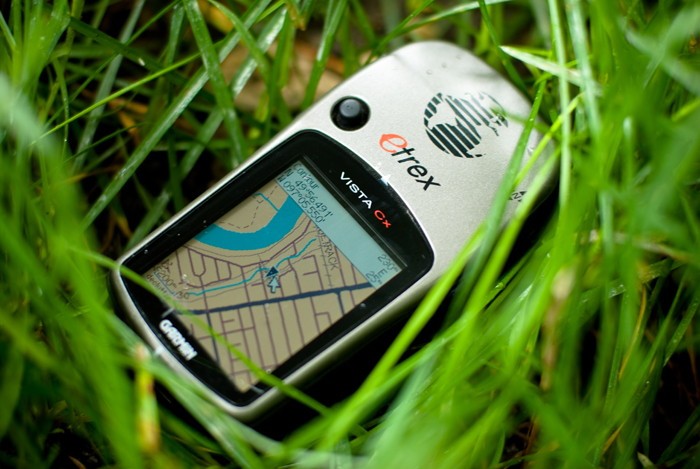Cache the wave
Treasure hunting for the 21st century
Looking for a novel excuse to migrate to the outdoors and enjoy the sun this summer? One that doesn’t involve lethargy, a beach blanket and a bad book? You could always get out and go geocaching. That is, if you have any idea what it actually means to go geocaching.
“Geocaching is a great activity for anyone because it’s relatively inexpensive, all you need is a GPS (Global Positioning System) receiver that can start as low as $100. It gets people outdoors and offers a source of exercise that doesn’t feel like exercise,” said James Kellough, geographic information specialist (GIS) and avid geocacher.
For those of you still scratching your heads in befuddlement, the Manitoba Geocaching Association can help. They describe geocaching as a sport for all ages where a handheld GPS is used to set up geocaches, post their latitudes and longitudes on the Internet, and have other geocachers seek them out. Once found, the finder will replace the found item in the geocache with another “treasure,” or simply record their findings on the website. Tradable items in the cache are usually trinket items like stickers or coins. The so-called treasure is merely adjacent to the journey itself.
“Geocaching can be very social as many hunters go caching in groups. The Manitoba Geocaching Association often hosts geocaching events. For me personally, the most appealing thing about geocaching is that it is a great free family activity. Last week, my family and I participated in our first Geocaching event at the zoo,” said Kellough.
Kellough stresses that despite his geography background, one doesn’t need to be a mapmaker to be an advanced geocacher.
“Unfortunately, being a GIS specialist doesn’t make me a good geocacher, it just means I understand the technology and geographic principals behind the game. The majority of geocachers I’ve met have no educational or work background in geography. I think geocaching is a major breakthrough in bringing GPS technology to non-geographical people.”
Over the past decade or so, geocaching has been gaining popularity following the advent of improved GPS technology.
“It really is like treasure hunting for the 21st century,” remarks Geographic Information Systems technician Tyler Munn, also a geography graduate. “What the advent of geocaching represents is how advancing technology can alter and affect leisure activities.”
Barry Stevens, also a geo grad and co-ordinator of shipment and planning for Canadian Pacific believes that the value of promoting the use of GPS in a “fun and light way” can be seen not only in improving technological literacy, but also offers interesting opportunities for industry.
“It can be used as a way to facilitate travel and tourism,” he explains.
Indeed, many caches can be found throughout rural Manitoba.
Published in Volume 63, Number 29 of The Uniter (July 16, 2009)







